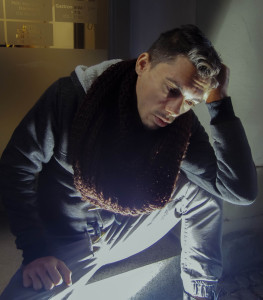Maykel is a new kind of journalist on the Cuban scene. This is the case, because after studying in the university and developing his career initially within the state media, he has carried his critical spirit to the point of being expelled from the radio station in which he worked. He considers himself an “independent journalist”, knowing full well the problems that this can bring him in Cuba, and despite it being a term that the new alternative journalists avoid since it has a strong pejorative connotation (associated with the opposition without formal training that produce a journalism of low quality and that is often just as incapable of being critical as the state). In addition, he has declared that he does not want to give up some of the ideas of the revolution, nor its social advances, which puts him outside of the majority of opposition media outlets. In the context of the absolute polarization of journalism, Maykel finds himself in a no man’s land.
Perhaps for that reason, it is so remarkable that he shows such consistency in his approach to free-lance journalism in Cuba. “I’m not going to marry myself to any media,” he says; “I write for anyone who accepts my articles just as I have done them, without changes or little touches.”

However, there is one media outlet that is closer to his values than others. El Estornudo (The Sneeze), a young digital media platform created by journalists from the University of Havana that seems to be breaking the tendency that the new alternative media outlets do not cross: the limits that the government has set for them. El Estornudo crossed all these lines when it published the audio that Maykel recorded secretly during his arrest. Because in May, Maykel was the first non-opposition journalist to spend three days in jail because of journalism; and yes, he also had the courage to publish the recorded audio from his interrogation.
The only crime that Maykel had committed was to cover Hurricane Matthew in Baracoa without the express authorization of the government. And after his release, he refused to accept the reprimand and rhetorically justify what the government did in order to continue practicing journalism without problems, but he publishes every act of repression or detention of a journalist on Facebook, regardless of which side he/she comes from, and regardless of the ideas that he/shea dvocates. “There are no first and second class journalists, we are all journalists, and we all have the right to do journalism,” says Maykel.
In this sense, he is certain that the spaces that the alternative press enjoys now have not simply fallen from heaven: “It may be that some years ago, independent journalists were amateurs, but they are our precursors,” he admits. “I refuse to reproduce the same strategy of exclusion that the government has been applying to us.”
According to Maykel, media outlets, like On Cuba and Journalism from the Barrio try to prove that alternative journalism can be done without offending the government, but he clarifies: “journalism demands freedom, and this will always anger the government.” This is why a crusade has been taking place in the universities against these new media outlets, which have seen a significant rise among university students, who have grown fed up with the rigidity of the state media and eager for new points of view.
Maykel sees the situation of alternative journalists in Cuba like that of circus artists, wobbling, trying to maintain their balance: “either the alternative media goes beyond a more contentious or provocative journalism or it is going to die,” he says. As for himself, Maykel claims to have reached a point of no return. “We must overcome this confrontation between independent journalists and alternative journalists,” he says, and insists that although he knows that today this is very difficult, all journalists should make a common force to build a new kind of journalism in Cuba. To conclude he stated that “the ethical degradation of journalism has to end.”

Leave a comment